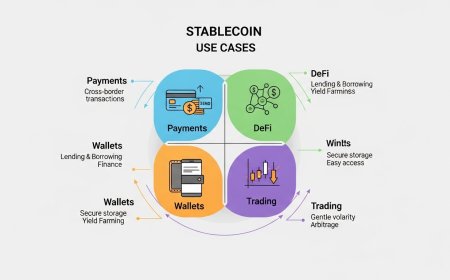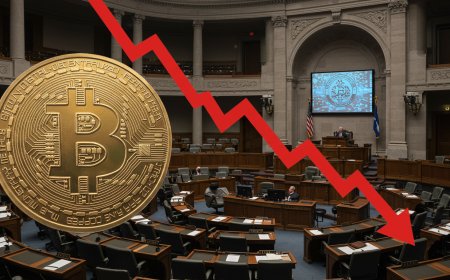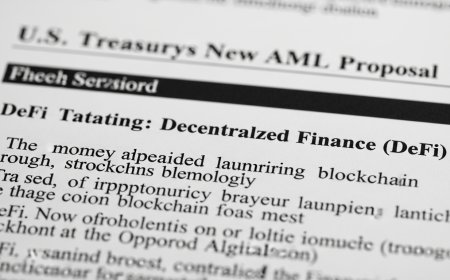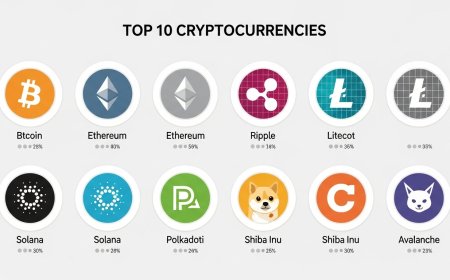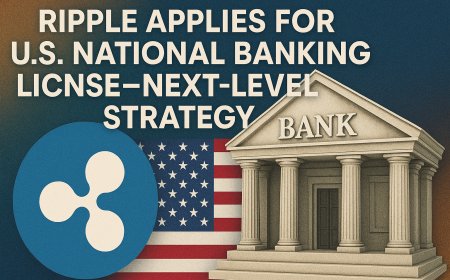What the GENIUS Act Means for Your Crypto Portfolio: The Complete Breakdown
The GENIUS Act - the first cryptocurrency legislation to pass Congress - creates new consumer protections, blocks political conflicts of interest, and restricts Big Tech stablecoin ambitions. Complete analysis of how these changes affect your crypto investments and trading strategy.
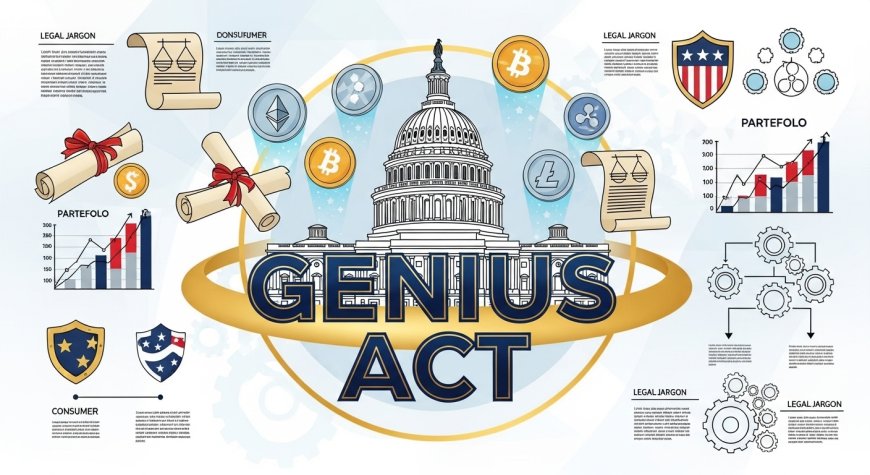
What the GENIUS Act Means for Your Crypto Portfolio: The Complete Breakdown
The first crypto bill to clear Congress is now law—here's exactly how it changes everything
History was just made. The GENIUS Act became the first cryptocurrency legislation to pass both chambers of Congress, sailing through with a bipartisan vote of 308 to 122. But while crypto Twitter celebrates this "regulatory clarity," most people have no idea what this actually means for their investments, their wallets, or the future of digital assets.
Let's cut through the noise and break down exactly what just changed.
What the GENIUS Act Actually Does
The Generating Enhanced National Intelligence and Enhanced Security (GENIUS) Act primarily focuses on stablecoin regulation, but its implications ripple through the entire crypto ecosystem. Here are the key provisions that matter:
Consumer Protection Gets Teeth
The updated GENIUS Act ensures that existing laws enforced by the Consumer Financial Protection Bureau (CFPB) and the Federal Trade Commission (FTC) remain applicable to stablecoin issuers. Translation: Your consumer rights don't disappear when you use crypto.
What This Means for You:
- Stablecoin providers can't hide behind "innovation" to avoid consumer protection laws
- You have recourse if a stablecoin provider loses your funds or engages in fraud
- Traditional consumer finance protections now extend into the digital asset space
The Political Corruption Clause
Here's a provision that's getting zero coverage but could be huge: The GENIUS Act prohibits "any member of Congress or senior executive branch official from issuing a payment stablecoin product during their time in public service."
Why This Matters:
- Prevents insider trading on regulatory decisions
- Eliminates conflicts of interest in crypto policymaking
- Creates cleaner separation between regulators and industry
Think about it: How many times have politicians made crypto-friendly statements right before launching their own tokens? That game is over.
The Big Tech Bombshell
The most underreported aspect of the GENIUS Act is its restriction on non-financial large tech companies issuing stablecoins unless they establish or partner with regulated financial entities.
The Real Impact:
- Apple can't launch AppleCoin without banking partnerships
- Meta's metaverse currency dreams require regulatory compliance
- Google must work with traditional finance to enter stablecoins
- Amazon's payment ambitions get channeled through regulated partners
This isn't anti-innovation—it's pro-competition. It prevents Big Tech from creating closed-loop currency systems that could monopolize digital payments.
How This Changes Your Investment Strategy
Immediate Winners
Traditional Stablecoin Providers Companies like Circle (USDC) and Tether just became incredibly valuable partners. Every tech giant wanting to enter crypto payments must work with them or similar regulated entities.
Compliant Exchanges
Exchanges that already follow strict compliance procedures get competitive advantages as regulatory clarity removes uncertainty.
Banking-Crypto Partnerships Traditional banks partnering with crypto companies become much more valuable as tech giants need regulated partners.
Portfolio Positioning
Short Term (Next 6 Months):
- Established stablecoin ecosystems benefit from increased legitimacy
- Compliant DeFi protocols see institutional adoption acceleration
- Traditional finance-crypto partnerships become premium investments
Medium Term (6-18 Months):
- Innovation accelerates within regulatory frameworks
- Consumer confidence in crypto products increases
- Institutional adoption moves from experimental to operational
Long Term (2+ Years):
- Crypto becomes fully integrated into traditional finance
- New financial products emerge within clear regulatory boundaries
- Market maturation reduces volatility and increases utility
The Compliance Revolution
The GENIUS Act doesn't just regulate—it legitimizes. For the first time, crypto companies have a clear federal framework to operate within. This changes everything.
For DeFi Protocols: Clear stablecoin regulations provide certainty for building compliant decentralized finance products. Expect a wave of "regulation-friendly" DeFi innovations.
For NFT Marketplaces: Stablecoin clarity makes it easier to build consumer-friendly NFT platforms without regulatory uncertainty.
For Payment Processors: Crypto payment companies can now confidently build products knowing the regulatory ground rules.
What Doesn't Change (Yet)
Important caveat: The GENIUS Act focuses on stablecoins. It doesn't address:
- Bitcoin and Ethereum classification
- DeFi regulation beyond stablecoins
- NFT regulatory framework
- Mining and staking regulations
- International crypto transactions
These areas remain in regulatory gray zones, but the GENIUS Act creates momentum for addressing them systematically rather than through enforcement actions.
The Global Implications
The US just became the first major economy to pass comprehensive crypto legislation. This creates several international effects:
Regulatory Competition: Other countries will rush to create competitive crypto frameworks Standard Setting: US regulations often become global standards Capital Flow: Clear regulations attract international crypto investment to US markets
Preparing Your Portfolio
Immediate Actions
- Review Stablecoin Holdings: Ensure you're using compliant providers
- Assess Exchange Risk: Move funds to exchanges with strong compliance records
- Research Partnerships: Look for crypto companies partnering with traditional finance
Strategic Positioning
Overweight: Compliant crypto infrastructure companies Underweight: Regulatory-uncertain protocols and tokens Watch List: Traditional finance companies entering crypto partnerships
The Bigger Picture
The GENIUS Act represents crypto's transition from the Wild West to legitimate financial infrastructure. This isn't the end of innovation—it's the beginning of institutional-grade crypto adoption.
What This Really Means:
- Your parents might finally understand crypto regulations
- Institutions can invest without regulatory uncertainty
- Crypto companies can build sustainable business models
- Consumer protection comes to digital assets
Bottom Line: A New Era Begins
The GENIUS Act isn't just legislation—it's the starting pistol for crypto's next phase. We're moving from speculative frontier to regulated financial infrastructure.
For investors, this means:
- Reduced regulatory risk in portfolio planning
- Increased institutional adoption driving long-term demand
- Clearer compliance paths for crypto businesses
- Consumer protection building mainstream confidence
The crypto industry just got its license to operate at scale. The companies and tokens that thrive in this new environment will be the ones that embraced compliance early and built sustainable business models.
The message is clear: Crypto isn't going away—it's growing up.
This analysis is for educational purposes only and should not be considered financial advice. Always consult with a qualified financial advisor before making investment decisions.
What's Your Reaction?
 Like
0
Like
0
 Dislike
0
Dislike
0
 Love
0
Love
0
 Funny
0
Funny
0
 Angry
0
Angry
0
 Sad
0
Sad
0
 Wow
0
Wow
0















